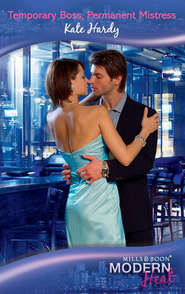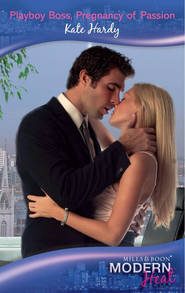По всем вопросам обращайтесь на: info@litportal.ru
(©) 2003-2024.
✖
A Diamond In The Snow
Автор
Год написания книги
2019
Настройки чтения
Размер шрифта
Высота строк
Поля
At the mention of her little sister, Victoria’s throat felt thick and her eyes prickled with tears.
‘It’ll work out, darling,’ Diana said, enveloping her in a hug. ‘These things always do.’
‘I’ve been thinking about how we can raise the money. I know we usually close from half-term so we have a chance to do the conservation work before the visitor season starts again, but maybe we could open the house at Christmas this year. Just some of the rooms,’ Victoria said. ‘We could trim them up for Christmas as it would’ve been in Regency times, and hold workshops teaching people how to make Christmas wreaths and stained-glass ornaments and old-fashioned confectionery. And we could hold a proper Regency ball, with everyone in Regency dress and supper served exactly as it would’ve been two hundred years ago.’
‘Just like you and Lizzie used to pretend, when you were little and you’d just discovered Jane Austen.’ Diana ruffled her hair. ‘That’s a splendid idea. But it’ll be a lot of extra work, darling.’
‘I don’t mind.’ It wasn’t a job to her: she loved what she did. It was her life.
‘We can hire in some help to support you,’ Patrick said.
Victoria shook her head. ‘We can’t afford it, Dad. The cost of fixing the ballroom is going to be astronomical.’
‘Then we can try and find a volunteer to help you,’ Patrick said.
‘Yes—I can ask around,’ Diana added. ‘There’s bound to be someone we know whose son or daughter is taking a gap year and would leap at the chance to get experience like this. We could offer bed and board here, if that would help.’
‘Maybe this could be the start of a new Chiverton tradition,’ Patrick said. ‘The annual Christmas ball. In years to come, your grandchildren will still be talking about how you saved the ballroom.’
Grandchildren.
Victoria knew how much her parents wanted grandchildren—and she knew she was letting them down there, too.
The problem was, she’d never met the man who made her want to get married, much less have children. Her relationships had all fizzled out—mainly when she’d discovered that the men she’d dated hadn’t wanted her, they’d wanted the house and the lifestyle they thought went with it. Once they’d discovered the lifestyle didn’t match their dreams, she hadn’t seen them for dust. And she’d been stupid enough to be fooled three times, now. Never again.
She’d fallen back on the excuse of being too busy to date, which meant her parents had taken to inviting eligible men over for dinner. Every couple of weeks they’d surprise her with someone who’d just dropped in to say hello. It drove her crazy; but how could she complain when she was so hopeless and couldn’t seem to find someone for herself?
Maybe the one good thing about the ballroom restoration was that it might distract her parents from matchmaking. Just for a little while.
‘A new tradition sounds lovely,’ she said, and forced herself to smile.
‘That’s my girl,’ Patrick said, and patted her on the shoulder. ‘We’ll find you some help. And we’ll get that mould sorted. Together.’
Sam felt a twinge of guilt as he parked on the gravel outside his parents’ house. He really ought to come home more often. It wasn’t that far from London to Cambridge, and he was their only child. He really ought to make more of an effort.
His first inkling that something might be wrong was when he walked into the house with a large bouquet of flowers for his mother and a bottle of wine for his father, and his mother started crying.
He put everything he was carrying onto the kitchen table and hugged her. ‘If I’d known you were allergic to lilies, Mum, I would’ve brought you chocolate instead.’
‘It’s not that. I love the flowers.’ She sniffed.
He narrowed his eyes. ‘What, then?’ Please, not the unthinkable. Several of his friends had recently discovered that their parents were splitting up and were having a hard time dealing with it. But his parents’ marriage was rock-solid, he was sure.
‘It’s your dad. He had a TIA on Wednesday night—a mini-stroke.’
‘What?’ Wednesday was three days ago. He stared at her in horror. ‘Mum, why on earth didn’t you call me? I would’ve come straight to the hospital. You know that.’
She didn’t meet his eye. ‘You’re busy at work, sweetie.’
‘Dad’s more important than work, and so are you.’ He blew out a breath. ‘Is he still in hospital? Is he all right? And how are you doing?’
‘He’s recuperating at home, and I’m fine.’
The first bit might be true, but the second definitely wasn’t. ‘Mum, I hate that you went through this on your own.’ On Wednesday night, he’d been out partying. Without a clue that his father was in the emergency department with a potentially life-changing illness. ‘What did the doctors say?’
‘That if he wants to avoid having another one, or even a full-blown stroke, he needs to take it easier. Maybe think about retiring.’
Which was Sam’s cue to come back to Cambridge and take over Patrick’s place as the head of the family firm of stockbrokers. Leave the fast-paced, high-octane job he loved in the buzzing, vibrant capital for a staid, quiet job in an equally staid, quiet city.
He pushed the thought aside. Of course he’d do the right thing by his family. He wasn’t that shallow and selfish, whatever his girlfriends liked to claim. There was a good reason why he kept all his relationships light. He’d learned the hard way that women saw him as a golden ticket to their future. Which wasn’t what he wanted.
‘And he needs to cut down on alcohol, stop smoking the cigars he thinks I don’t know about, eat more healthily and take more exercise,’ Denise added.
Sam glanced at the wine: his father’s favourite. ‘So this was the worst thing I could’ve brought him.’
‘It’s not your fault, love.’
‘So, what—porridge rather than bacon for breakfast, no salt, and no butter on his vegetables?’ Which meant his father wasn’t going to be happy.
Denise nodded. ‘But they’ve given him medication to thin his blood and stop another clot forming.’ She bit her lip. ‘Next time, it might be a full-blown stroke.’
Which might affect his father’s speech, his mobility and his ability to think clearly. Sam’s duty was very clear. ‘I’ll call my boss tonight and hand in my notice. I’m coming home to support you.’
‘We can’t ask you to do that, Sammy.’
‘You’re not asking. I’m offering,’ he pointed out, and hugged her again. ‘Mum, I want you to promise me you’ll never deal with anything like this on your own again. You call me. It doesn’t matter what time of day or night. You and Dad come first.’
She blinked away tears. ‘Oh, Sammy. I know you’ve got a busy life in London. I didn’t want to bother you.’
‘It bothers me a lot more that you didn’t tell me,’ he said grimly. ‘Promise me.’
‘I promise,’ she said.
‘Good. Put the wine in the rack, and I’ll think of something else to give Dad. Where is he?’
‘In the living room. He’s, um, not in the best of moods.’
Sam could imagine. ‘I’ll get him smiling, Mum.’
Alan Weatherby was sitting in an armchair with a rug over his knees and a scowl on his face.
‘Hey, Dad.’ Sam patted his father’s shoulder. ‘On a scale of one to ten of boredom, you’re at eleven, right?’
‘Your mother fusses and won’t let me do anything. She says I have to rest.’
But his father wasn’t known for sitting still. Resting would be incredibly frustrating for him. ‘Maybe we could go to the golf club and shoot a couple of holes,’ Sam suggested.
Alan rolled his eyes. ‘It’s play, not shoot. Which just shows you’re a complete rookie and you’ll hack divots out of the green and embarrass me.’











